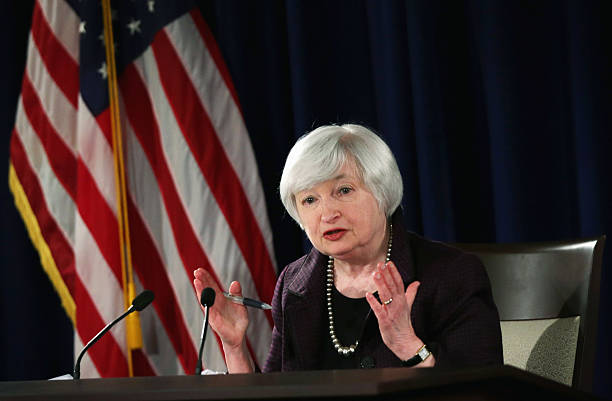The future of cryptocurrency regulation in the United States hangs in the balance, caught between the push for stricter controls and concerns about stifling innovation. A recent letter from key members of Congress throws a curveball into Treasury Secretary Janet Yellen’s call for tighter regulations, specifically questioning the effectiveness of the Howey Test, a central tool used to classify digital assets as securities.
Crypto Regulation Debate: Balancing Innovation, Safeguards
This clash underscores the ongoing debate surrounding the appropriate approach to regulating the ever-evolving crypto landscape. On one hand, the FTX collapse exposed vulnerabilities within the industry, highlighting the need for stronger safeguards to protect investors and maintain financial stability. On the other hand, overly restrictive regulations could stifle innovation and hinder the growth of a potentially transformative technology.
The letter, penned by House Financial Services Committee Chair Patrick McHenry, House Agriculture Committee Chair Glenn Thompson, and Representatives French Hill and Dusty Johnson, demands clarity from Yellen on her vision for regulating digital assets.
The letter emphasizes the need for a clear framework to regulate the evolving landscape of cryptocurrencies. Policymakers seek Yellen’s vision on how the US can regulate and incorporate digital assets into the financial system while managing potential risks.
This reflects a growing acknowledgment of the transformative potential of digital assets and the urgency to establish regulatory guidelines for innovation and investor protection in this rapidly changing sector.
The lawmakers raise concerns about the Howey Test, which analyzes transactions after the fact to determine if an asset qualifies as an investment contract, thus falling under the SEC’s purview. The Congress members argue that this retrospective approach is insufficient for proactive investor protection and question its applicability to major cryptocurrencies like Bitcoin and Ether, which currently exist outside its regulatory scope.
Yellen Urges Congressional Action On Crypto
Yellen, however, emphasizes the need for Congressional action to address the regulatory gaps exposed by the FTX debacle. During her testimony before the House Financial Services Committee, she reiterated her call for legislation to regulate stablecoins, digital assets pegged to traditional currencies, and the spot market for non-security crypto assets.
While acknowledging existing regulatory authority in some areas, she stressed the need to close loopholes that compromise consumer protection and financial stability. The lack of CFTC authority over spot markets, for example, represents a significant hurdle.
Stablecoins, with their potential systemic risks, are a particular concern for Yellen. She advocates for a dedicated legislative framework to address these concerns, reflecting a broader governmental push to safeguard the financial system from the inherent volatility of cryptocurrencies.
The February 20th deadline set for Yellen’s response to the Congress members’ letter underscores the urgency for clarity and action. This ongoing dialogue highlights the complex balancing act between fostering innovation in the crypto space and ensuring consumer protection and financial stability.
Finding the right equilibrium will require careful consideration of all stakeholders’ concerns and a nuanced approach that embraces the potential of this technology while mitigating its risks.
Featured image from Getty Images, chart from TradingView









